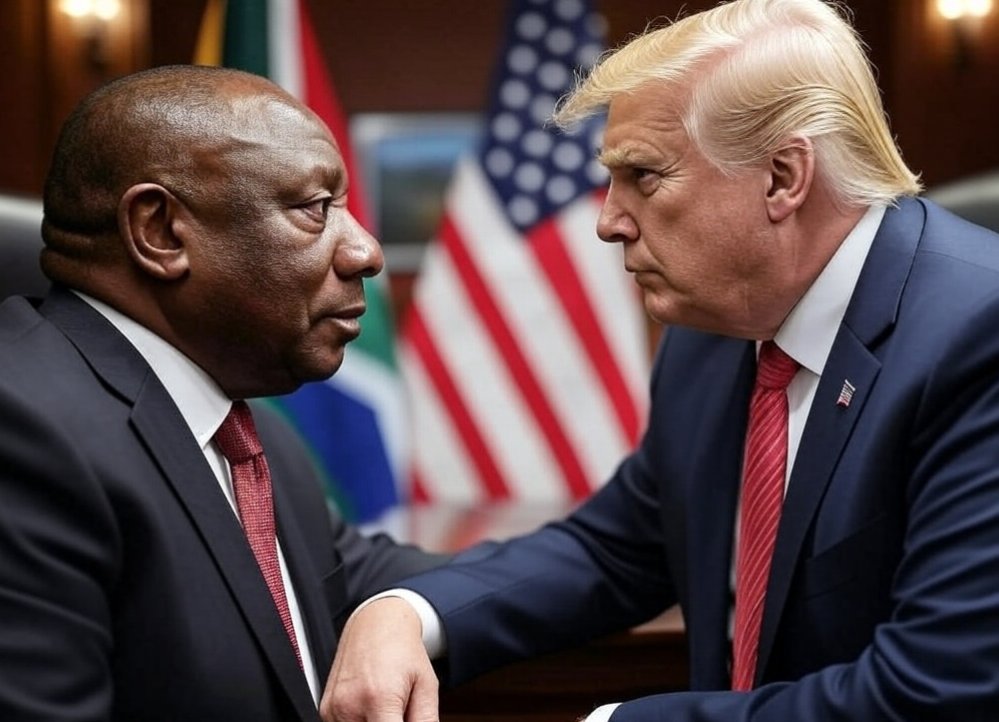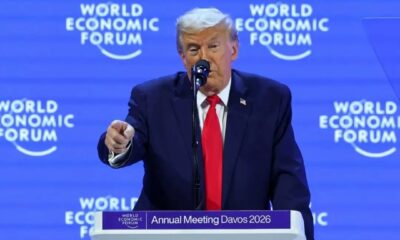News
“No More Excuses”: U.S. Sets Firm Conditions for Restoring Ties with South Africa

From farm attacks to BEE: Why Washington says the ANC must clean house before relations can be fully restored
A high-level South African delegation of Afrikaner leaders returned from Washington, D.C. this week with a message from the White House that could reshape diplomatic relations between South Africa and the United States, but only if Pretoria is willing to listen.
According to FF+ parliamentary leader Corné Mulder, who led the delegation, U.S. officials have made it unequivocally clear that several thorny issues, farm attacks, land expropriation, Black Economic Empowerment (BEE), and the controversial “Kill the Boer” slogan, must be addressed if relations are to return to a more constructive footing.
“Kill the Boer”: A line in the sand
At the heart of the U.S. concerns is the ANC’s silence or in some cases, defence of the “Kill the Boer, Kill the Farmer” chant, popularised by struggle songs and recently reignited in political rallies.
The White House delegation reportedly demanded a clear and public condemnation of the phrase by South Africa’s ruling party, saying no historical justification can excuse rhetoric that incites racial hatred.
While courts in South Africa have previously ruled the chant is not hate speech in certain contexts, U.S. officials are not buying it. The Biden Administration, much like the Trump Administration before it, sees the issue as undermining South Africa’s credibility on human rights and social cohesion.
Farm attacks: More urgency, less politics
Another flashpoint is the alarming frequency of violent attacks on farms, often marked by torture, rape, and murder.
Washington is reportedly frustrated that farm attacks aren’t treated with the same national urgency as rhino poaching or cash-in-transit crimes. The White House is now calling for every farm attack to be classified as a priority crime and investigated by the Hawks—South Africa’s elite crime-fighting unit.
This position isn’t new but appears to be hardening, especially given concerns in conservative U.S. circles that the South African government is downplaying rural violence for political reasons.
Land expropriation: No shortcuts, no surprises
The ANC’s push for land expropriation without compensation has long raised eyebrows internationally. In the latest discussions, U.S. officials insisted that no expropriation should occur without full market-based compensation, and only after exhausting all legal avenues.
To many, this echoes long-standing Western anxieties about Zimbabwe-style land reform chaos and the fear that investor confidence could be shattered if private property rights are not guaranteed.
BEE exemptions: No racial gatekeeping for U.S. firms
Perhaps the most controversial of all the demands is the request that U.S. entities be exempt from South Africa’s BEE (Black Economic Empowerment) policies.
According to the delegation, race-based legislation that could act as non-tariff trade barriers should not apply to American companies. U.S. officials say such policies risk violating international trade agreements, and if not revised, could sour trade relations.
This condition may prove the most politically combustible, given that BEE is central to post-apartheid economic redress, but it also reflects a global shift away from race-based trade criteria, particularly under Republican-led U.S. trade lobbies.
Transparency or pressure? Afrikaner leaders carry the message home
The South African delegation included not only Mulder, but Theo de Jager of the Southern African Agri Initiative (Saai) and Gerhard Papenfus, CEO of the National Employers’ Association.
They met with senior representatives from the Office of the U.S. Vice President, the National Security Council, and Homeland Security Council making it clear that these demands are not fringe political talking points, but official U.S. foreign policy positions.
“The delegation now has a clear understanding of the USA Administration’s expectations,” said a joint press statement.
The delegation said they were asked to convey these conditions to both the South African government and the public in the interest of transparency and accountability.
No comment yet from Pretoria
As of Friday, there has been no official response from the South African Presidency or the Department of International Relations and Cooperation (DIRCO).
Whether the ANC is willing to take these concerns seriously or frame them as neocolonial interference—remains to be seen. But ignoring them could have consequences.
With South Africa’s participation in AGOA (African Growth and Opportunity Act) already under review, and diplomatic trust between the two countries at a low point after controversial non-aligned stances on global conflicts, Washington’s patience may be wearing thin.
This wasn’t just a courtesy visit. It was a diplomatic intervention, and the message from Washington is crystal clear: No more half-measures. No more rhetoric. Fix the fundamentals or risk falling further out of step with the world’s biggest economy.
The ball, as always, is in Pretoria’s court.
{Source: BusinessTech}
Follow Joburg ETC on Facebook, Twitter , TikTok and Instagram
For more News in Johannesburg, visit joburgetc.com



























